Psalm 137:8-9, How can we sing in a foreign land?
O Daughter of Babylon, doomed to destruction, happy is he who repays you for what you have done to us—he who seizes your infants and dashes them against the rocks.
//In my book about Revelation, I suggested that this psalm may be the both the most heartrending and the most disturbing passage in the Bible. Can you imagine being so consumed by hatred for your captors, that you dream of dashing their babies against rocks?
By the rivers of Babylon we sat and wept when we remembered Zion. There on the poplars we hung our harps, for there our captors asked us for songs, our tormentors demanded songs of joy; they said, “Sing us one of the songs of Zion!” How can we sing the songs of the LORD while in a foreign land?
This psalm provides a testament to the suffering the Jews endured through the centuries, as the Bible was being compiled. If not for such hardships, our scriptures would perhaps be lifeless.
Book review: Why God Won’t Go Away
by Andrew Newberg, M.D., Eugene D’Aquili, M.D, Ph.D., and Vince Rause
★★★★
A single quote from this book probably explains all we need to know about why God won’t go away:
So impressive are the health benefits of religion … that after reviewing more than a thousand studies on the impact of religion upon health, Dr. Harold Koenig of Duke University Medical Center recently told The New Republic, that “Lack of religious involvement has an effect on mortality that is equivalent to forty years of smoking one pack of cigarettes per day.
What more evidence do we need that evolution has wired us for religion? The subtitle is Brain Science & The Biology of Belief, and the back cover copy promises, “This fascinating, eye-opening book dares to explore both the miracle and the biology of our enduring relationship with God.”
The book begins with a short overview of the brain; in particular, the orientation association area that defines the “self.” The authors believe this area is extremely important in the brain’s sense of mystical and religious experiences.
Religion is far from new. The graves and shrines of the Neanderthals are the earliest known evidence of religious behavior. As soon as hominids began to behave like human beings, they began to wonder and worry about the deepest mysteries of existence—and found resolutions for those mysteries in the stories we call myths. This observation is central to the authors’ quest for understanding our religious need. Why would the human mind compel us, in every culture and throughout time, to seek answers to our most troubling problems in myth?
The book next discusses ritual, mysticism, and the mind’s search for absolutes … for the “realer than real.” Our minds are drawn by the intuition of a deeper reality, an utter sense of oneness with the Absolute. God, say the authors, will not go away, so long as we are capable of sensing something more.
In text format paste:
Exodus 20:2-17, The Ten Commandments
You know the story. God called Moses up the mountain, and there transcribed a series of commandments upon stone tablets:
I am the Lord your God
You shall have no other gods before me
You shall not make for yourself an idol
Do not take the name of the Lord in vain
Remember the Sabbath and keep it holy
Honor your father and mother
You shall not murder
You shall not commit adultery
You shall not steal
You shall not bear false witness against your neighbor
You shall not covet your neighbor’s wife
You shall not covet anything that belongs to your neighbor
Moses came down the mountain, found the Israelites worshiping a golden calf in his absence, and flung down the tablets in anger. They broke, and he trudged back up the mountain for a new set. This new set can be read in Deuteronomy chapter 5 (Jewish tradition holds that the original instructions in Exodus were the broken tablets, and the new instructions in Deuteronomy are the replacements). The two sets of commandments roughly agree.
Inexplicably, however, the Deuteronomy reprint indicates that there are only ten commandments. Bet you didn’t notice: there are twelve listed above, and careful reading of the text may uncover as many as fourteen or fifteen separate directives.
What to do? Various faiths began combining the twelve basic instructions in different ways, to get the count down to ten. The Jewish Talmud combines 2 and 3, and 11 and 12. Anglican Christians write off 1, and combine 11 and 12. Orthodox Christians combine 1 and 2, 11 and 12. Roman Catholics combine 1, 2 and 3.
Can we at least agree on these twelve? Unfortunately, no. The Samaritan version makes room for a new tenth on the sanctity of their holy Mount Gerezim. Islam teaches that the Bible has been corrupted, and honors a different ten. Jesus, in Matthew 10, found only a few commands worthy of attention: “You shall not murder, You shall not commit adultery, You shall not steal, You shall not bear false witness, Honor your father and mother, and,You shall love your neighbor as yourself.”Now, you may ignore the Sabbath, worship whom you please, and covet your neighbor’s wife, as long as you love her as yourself.
Mark’s Gospel provides only two final commands: Love your God, and love your neighbor. In a way, these two embody all of the original twelve, but John’s Gospel drops one of Mark’stwo, leaving us only with the instruction to love one another. This omission seems to jibe with the series of commandments Jesus dropped in Matthew.
In the end, we’re left with one command: Love. Maybe that one will take care of the rest.
Got an opinion? 0 commentsBook review: The Jews in the Time of Jesus
by Stephen M. Wylen
★★★★★
This book is now fifteen years old, but it remains one of my favorites, and I wanted to share it. Stephen Wylen is a rabbi at Temple Beth Tikvah, Wayne, NJ, and I so enjoyed his book that I asked him to contribute a back-cover blurb for my own book. He did even more: he contributed a full review: http://www.dubiousdisciple.com/reviews. I’m indebted to him, but luckily, his is an easy book to recommend.
Jesus was a Palestinian Jew, and this book does a great job of describing the world Jesus lived in. His world can hardly be understood without some background of Jewish history, both political and religious. The two are interrelated: As the Jews were surviving the period of the Maccabees and Hellenistic integration, they were also seeing the age of prophecy transition into Messianism and Apocalypticism. Wylen spends a great deal of time discussing first-century Judaism: the Synagogue, Sabbath observance, ritual purity, and so on. Jewish understanding of God, Satan, Logos, and their practice of prayer and worship differed from neighboring nations, but did not escape subtle influences. Judaism itself was also fragmented, between Sadducees, Essenes, Zealots and Pharisees.
Wylen also discusses the trial of Jesus. From what the Mishnah tells us about Jewish law there are some problems with the trial story as it stands. For example, the gospels say that the Sanhedrin found Jesus guilty of blasphemy, yet none of Jesus’ words or deeds are blasphemous according to Jewish law. Nor could Jesus have been tried on a capital offense in the manner told in the gospel. According to the Mishnah there were many judicial rules designed to protect defendants accused of a capital crime. The trial had to be held before a full court. The sentencing and hearing had to occur during daylight hours. They could not convict on the day of the trial, as described.
For these reasons and more, Wylen concludes Jesus must have been tried by a kangaroo court called together by the high priest Caiaphas, acting on orders from the Romans. Pilate then convicted Jesus of being a revolutionary and sentenced him to crucifixion, just as he slaughtered numerous other innocent Jews.
Wylen delves into why Jesus was killed, whether Pilate was guilty or innocent, how the crowd felt about Jesus, and how much of the passion story is historically true. An excellent and informative book, written in an easy-to-understand style.

John 18:28, When did Jesus die?
Then the Jewish leaders took Jesus from Caiaphas to the palace of the Roman governor. By now it was early morning, and to avoid ceremonial uncleanness they did not enter the palace, because they wanted to be able to eat the Passover.
//In Matthew, Mark and Luke, Jesus shares a final Passover meal with his disciples. Thus the first three Gospels imply that Jesus died on or after the Passover, but John’s Gospel provides a different time line. In John, Jesus dies on the “day of Preparation” (see John 19:42). All four Gospels indicate that Jesus’ body was rushed to the burial site before the Sabbath begins (6pm Friday evening), and this is where we get Good Friday and the idea that Jesus died on a Friday, but John’s Gospel has changed this from a Saturday Sabbath into a “High Sabbath.” John’s “Sabbath” (day of rest) is the feast day of Passover, not Saturday. Nowhere is this more clear than in today’s verse, which indicates that the trial of Jesus occurs before the Passover. Jesus is crucified that same day. There is no final Passover meal in John’s Gospel; the Passover had not yet begun. So, in trying to figure out when Jesus died according to John, we must figure out the day of the week on which Passover occurred.
This is not as simple as it sounds, and there will not be universal agreement, but most scholars suspect that Jesus died in the year 30 CE. This agrees with Luke, who dates John the Baptist’s public baptism to the fifteenth year of the reign of Tiberius–29 CE on our present Calender–and then, like the other two Synoptics, narrates about a year for the ministry of Jesus. Computer analysis of the Hebrew calendar places the Passover on a Thursday for the year 30 CE (though any such calculation is not a certainty). Thus John’s Gospel indicates Jesus died the day before, which would be Wednesday, before 6 pm. (On the Hebrew calendar, the day always began and ended in the evening, as indicated in Genesis of a “day” being “an evening and a morning.”)
Now comes a very interesting fact. John, you may recall, is the Gospel that says when Jesus spoke of the Temple being rebuilt, he spoke of his own body. This is one of John’s most fascinating contributions to Christian theology. The book of Daniel indicates that the rebuilding of the Temple will be over a period of three and a half “days,” which most theologians interpret to mean three and a half years. But if Jesus died just before sundown on Wednesday, and rose from the dead just before sunup Sunday, he was in the grave … precisely three and a half days! According to John, we may lay to rest all of the ideas about the Temple being rebuilt in three and a half days/years as described in the book of Daniel, for Jesus has already fulfilled that scripture!
Book review: The Bible Code
by Michael Drosnin
★
You knew I’d get to this book eventually, right? Well, I’m here to tell you it’s absolutely brilliant. Drosnin is my idol. With a savvy grasp of human nature, a little computer programming, and a mathematician’s insight into probabilities, he put together a best seller.
The book’s premise is that the Bible contains a secret code, and that he has cracked the code to reveal its hidden messages. Simply start at any letter in the Bible, skip ahead a fixed number of letters to the next, and continue until it spells out … well, whatever you like. Start with the first T in Genesis, skip 49 letters to an O, skip 49 more to an R, 49 more to H. Lo and behold, you’ve spelled TORH, the Hebrew word for the first five books of the Bible. Miraculous, isn’t it?
No, it’s neither miraculous nor unexpected. As Keith Devlin demonstrated about a year after The Bible Code hit the bookstores, the word TORH appears 56,768 more times in the software, searching just the book of Genesis alone. TORH appeared in an issue of the Wall Street Journal 15,000 times. But might there be more impressive words than TORH? Yes, several! The first encoded phrase the book mentions is “Yitzhak Rabin,” which he uncovers in Deuteronomy. Drosnin carefully lays out his analysis in matrix form so that it looks like a word find puzzle, and crossing Yitzhak Rabin is the phrase “Assassin that will assassinate.” Need more evidence? The phrase “Rabin assassination” crosses “Tel Aviv” in the book of Exodus. Yep, that’s where Amir assassinated Rabin. Oh, the name “Amir” appears in the book of Numbers.
A code of equidistant letters buried within the Bible is not a new idea. See Wikipedia for a full discussion. But with a little computer programming, Drosnin pushes it to the limit. He uncovers prophecies about Watergate, Hitler, Shakespeare’s writings, Edison’s inventions, the holocaust, Roosevelt, Kennedy, communism, Armageddon, and, amazingly, the promise of a future book named “Bible Code.”
It all sounds convincing, until a little experimentation verifies the same probabilistic expectations in other works of literature. Moby Dick revealed much of the same prophecies and many more. So, mathematicians turned back to the Bible to see what else they could learn by the using the software. Several more startling prophecies surfaced: “Code is bunk.” “Drosnin Fraud.” “Darwin was right.” Sigh.
Please don’t read the book, but do gain inspiration from the genius of Drosnin. Millions of dollars are waiting for the next great sham.

Genesis 6:4, the Nephilim
The Nephilim were on the earth in those days—and also afterward—when the sons of God went to the daughters of men and had children by them. They were the heroes of old, men of renown.
//In this verse, “sons of God” (usually understood as fallen angels) mate with human women, and produce a race of people known in the Bible as Nephilim. Who were the Nephilim, and what happened to them? The New Living Translation renders the name Nephilim as simply “giants.” The name appears in the Bible in only one other location, in Numbers 13:33, when the Israelites arrive at the land of Canaan, and send spies in to scout the land. The report comes back of giants in the land:
We saw the Nephilim there (the descendants of Anak come from the Nephilim). We seemed like grasshoppers in our own eyes, and we looked the same to them.”
It’s little wonder the spies were terrified of the Nephilim. The presence of giants in the land of Canaan is verified by Amos 2:9, where God describes “the Amorite” as being “as tall as the cedars and strong as the oaks.” Jude, verses 6-7, may also refer to the Nephilim when it compares the sin of fallen angels to the promiscuity of Sodom and Gomorrah. More can be learned about the Hebrew tradition of the Nephilim from the popular books of 1 Enoch and Jubilees. Both of these books are quoted as scripture in the New Testament; in particular, the book of Revelation can hardly be understood without tracing its many references to 1 Enoch. Here is a portion of what we learn from Enoch:
And it came to pass when the children of men had multiplied that in those days were born unto them beautiful and comely daughters. And the angels, the children of the heaven, saw and lusted after them, and said to one another: ‘Come, let us choose us wives from among the children of men and beget us children.’ And Semjaza, who was their leader, said unto them: ‘I fear ye will not indeed agree to do this deed, and I alone shall have to pay the penalty of a great sin.’ And they all answered him and said: ‘Let us all swear an oath, and all bind ourselves by mutual imprecations not to abandon this plan but to do this thing.’ Then sware they all together and bound themselves by mutual imprecations upon it. And they were in all two hundred; who descended in the days of Jared on the summit of Mount Hermon, and they called it Mount Hermon, because they had sworn and bound themselves by mutual imprecations upon it…
So where are the Nephilim today? Jubilees explains that the majority of them were swept away in the flood of Noah’s day. Indeed, they were part of the reason for sending the flood. However, God allowed a portion to remain alive, as demons (disembodied spirits), to try and lead the human race astray, and these demons will remain until the Judgment Day.
Got an opinion? 3 commentsBook review: Abraham
by Bruce Feiler
★★★★★
“So, Professor, what do we know about Abraham?” I asked.
“All we know about Abraham is in the Bible,” he says. “In the ground, there is nothing.”
This book is Bruce Feiler’s best. With no archaeological evidence whatsoever to explore, he embarks on his journey to learn about Abraham by interviewing members of various faiths, and finds himself enmeshed in a bewildering array of legends and claims. Abraham begins life as a polytheist in Ur, but is called by a foreign god, Yahweh, to journey to a new land. The promise by this strange god? “All the families of the earth shall bless themselves by you.” Various passages in the Bible retain echoes of this polytheism; Abraham is a transitional figure, with a foot in both worlds.
In this new land, two sons are born to Abraham, and God asks Abraham to sacrifice one of them as a test of his faith. So diverse are the legends about Abraham that there is not even agreement over which son is the requested sacrifice, but the Biblical account favors Isaac. This sacrifice—of whichever son—plays a major role in Judaism, Christianity, and Islam. Feiler writes, “Considering that I set out in search of what I thought was one Abraham at the heart of all three faiths, I was amazed by how much time I spent trying to figure out when one religion’s Abraham ended and another began.
The Jewish religion appears to have seniority. “Long before Christians and Muslims set about reinterpreting Abraham, early Jews were the first to perform reconstructive surgery on their purported father.” Feiler describes how the Israelites set about codifying their Bible, gathering and recording oral stories. Suddenly, Israel had scripture that described their ancestors, but what difference did that make? They still needed to make that text relevant to their lives. They needed midrash. Qumran provides excellent examples of Jewish midrash, and how Abraham was molded into their image.
Some years later, Christians entered the scene. In Paul’s fourteen letters, he refers to Abraham nineteen times, more than any other figure except Jesus. But the idea that Abraham belongs to all humanity, which appears at least in spirit in Paul’s letters, soon begins to dissipate. Matthew traces Jesus’ lineage through Isaac to Abraham. God’s sacrifice of his Son is compared directly to Abraham’s sacrifice of Isaac. Abraham, says John, knew about Jesus thousands of years before Jesus was born. Abraham has been appropriated to the Christian side.
Hundreds of years later, Muslims trace their relevancy through Abraham’s other son, Ishmael. Ibn Kathir accuses Jews of dishonesty and slander, claiming they introduced Isaac into the story, even though the Bible says Abraham went to sacrifice his only son, his favored son. For Muslims, Ishmael was the favored son, so he was the one Abraham took to sacrifice. As Feiler interviews a Muslim leader, he is told, “Abraham is the father of one religion, and that religion is Islam.” “So what will happen to me?” Feiler asked. “You’ll die,” came the answer.
Thoroughly rattled, Feiler retreats. His book has become something entirely different than what he set out to write.
In the latter half of the first century, John the Apostle prophesied, The great city split into three parts, and the cities of the nations collapsed. Could any description of Jerusalem have been more prophetic? Nearly 2,000 years later, Jerusalem has come no closer to becoming a “city of peace,” after its namesake. It remains a haven of hatred divided by three factions, today the Jews, Muslims, and Christians who have warred over the Holy City since the time of the Crusades.
But if Abraham provided the road map of what had gone wrong among the religions, could he also provide a road map for how to make it right? Bruce Feiler at one point in his research opened the Bible to the moment when Isaac and Ishmael bury their father. “Is that a hopeful moment?” he asked. In September, 2002, Time magazine featured Abraham on its cover. “Jews, Christians, and Muslims all claim him as their father,” the magazine proclaimed. Can he be their peacemaker? The effect was electrifying. Suddenly, interfaith relations became a hot topic among religious leaders.
It’s a struggle for humanity we continue to fight. Please join me.

John 7:41-43 Was Jesus Born In Bethlehem?
Others said, “He is the Christ.” Still others asked, “How can the Christ come from Galilee? Does not the Scripture say that the Christ will come from David’s family and from Bethlehem, the town where David lived?” Thus the people were divided because of Jesus.
//Two of the four Gospels, Matthew and Luke, provide birth stories for Jesus, and both describe Jesus’ birth in Bethlehem. In Luke, Jesus’ parents travel from Nazareth to Bethlehem for a census, and have the baby there. In Matthew, they appear to be living initially in Bethlehem, and only later settle in Nazareth. The two stories differ in other fundamental ways, but they agree on the most important point: Bethlehem.
A number of noted Historical Jesus scholars, however, insist that Jesus was more likely born in Nazareth. They find the two birth stories unconvincing, and suggest that both were crafted to explain how Jesus of Nazareth somehow fulfilled the prophetic expectation of birth in David’s city of Bethlehem. Jesus was, after all, the proclaimed Messiah, the warrior figure promised through the ages, with the blood of the Hebrew hero David surging through his veins.
Enter today’s verse. John’s Gospel disagrees, and points out that Jesus’ origins are in Galilee. The “people” are troubled, knowing Jesus’ true origins, and knowing he didn’t come from Bethlehem. This is one of many places where John contradicts the other Gospels, but this is one of the more serious contradictions. So implanted is the Bethlehem birth story among Christians today that we invariably read the Johannine verse sideways; we pity the poor “people” who didn’t know the truth: That Jesus really did hail from Bethlehem! But John provides absolutely no hint of irony or contradiction in his story, and instead bolsters his argument by having the Jews say they know Jesus’ Galilean origins!
The question is, why? Why does John take such pains to point out the fallacy of the Bethlehem birth? The answer, I believe, is rooted in John’s theology of the Messiah. John is simply not interested in a Davidic warrior-type Messiah. John repeatedly compares Jesus not to David, but to Moses. John’s Gospel, written some 20-30 years after Jerusalem was leveled by the Romans, has given up on a political uprising and the restoration of the Jewish nation; he is ready to move on with his life.
Got an opinion? 18 commentsBook review: Satan, a Biography
by Henry Ansgar Kelly
★★★★
A strange book; I’m not entirely sure what to make of it. Kelly’s premise, and he is quite serious, is that Satan is a badly misunderstood fellow. That the Satan we know today bears little or no resemblance to the Biblical Satan.
As far as I can tell, Kelly is a believer in the Bible and in Satan, and wants to set the record straight. He doesn’t appreciate the legends that have sprung up about Satan since the writing of the Bible. Satan, for example, has nothing to do with the serpent in the Garden of Eden; that association began with the early church fathers. He has not yet been thrown out of heaven. He is not evil, and certainly will not be put in charge of punishing the damned in Hell.
Rather, Satan is merely an Accuser, and a useful one at that. Kelly begins with the oldest Biblical books, travels through the Septuagint translation and inter-testamental writings such as 1 Enoch and Jubilees, and wraps up the first half of his book with the Dead Sea Scrolls and the New Testament. In these writings, we see the picture of Satan remaining largely unchanged: Satan is a functionary of the Divine Government, charged with testing and disciplining mankind. He is suspicious of everyone, including Jesus. He is hostile to Jesus’ followers, constantly trying to trip them up and then lodge complaints against them before God. He is God’s Chief Tester, at worst a homicidal liar.
Then in the second half, Kelly methodically traverses the next 2,000 years and how Satan’s name has been corrupted.
I agree with Kelly that the understanding of Satan/Devil/Lucifer has evolved quite radically. I’m just not sure I agree with his timing. For example, I think Satan had evolved into God’s adversary in the minds of most believers before the New Testament was written, and I think the same about Satan’s connection with the serpent of Eden. Moreover, different Biblical writers appear to have had different ideas. I just don’t think the line is as crisp as Kelly draws. Nevertheless, it’s a book to make you think, and though the writing is a bit dry, I did enjoy the discussion, so I’ll give it four stars.


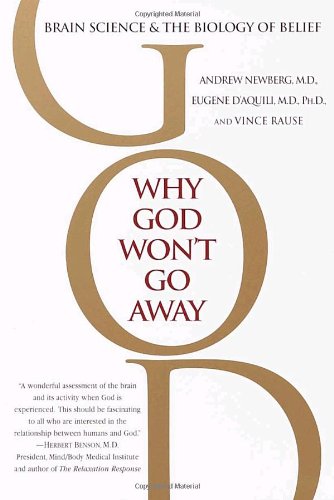
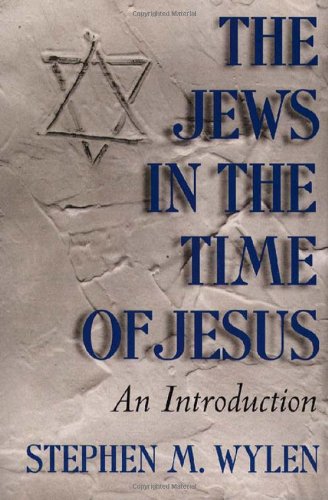
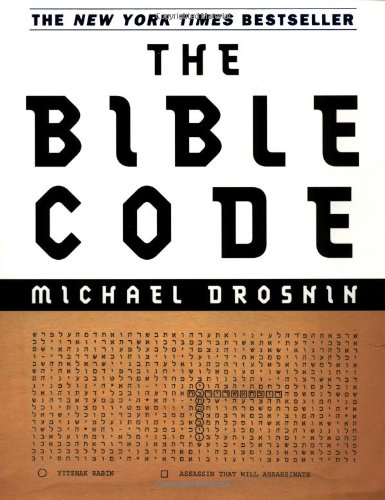
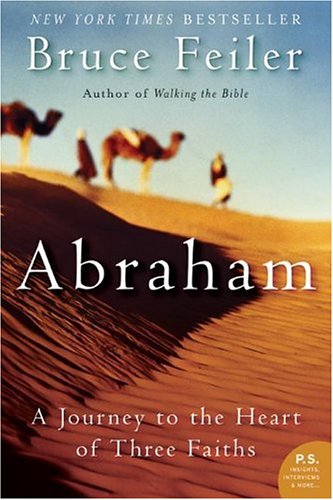

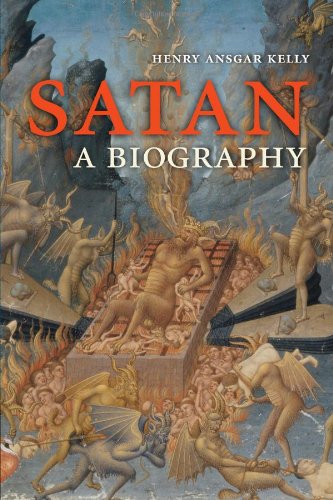









 354 Circles
354 Circles
 603 Goodreads Friends & Fans
603 Goodreads Friends & Fans

 Hello! I'm an author, historical Jesus scholar, book reviewer, and liberal Christian, which means I appreciate and attempt to exercise the humanitarian teachings of Jesus without getting hung up on any particular supernatural or religious beliefs.
The Bible is a magnificent book that has inspired and spiritually fed generations for thousands of years, and each new century seems to bring a deeper understanding of life’s purpose. This is true of not only Christianity; through the years, our age-old religions are slowly transforming from superstitious rituals into humanitarian philosophies. In short, we are growing up, and I am thrilled to be riding the wave.
I avidly read all thought-provoking religion titles. New authors: I'd love to read and review your book!
Hello! I'm an author, historical Jesus scholar, book reviewer, and liberal Christian, which means I appreciate and attempt to exercise the humanitarian teachings of Jesus without getting hung up on any particular supernatural or religious beliefs.
The Bible is a magnificent book that has inspired and spiritually fed generations for thousands of years, and each new century seems to bring a deeper understanding of life’s purpose. This is true of not only Christianity; through the years, our age-old religions are slowly transforming from superstitious rituals into humanitarian philosophies. In short, we are growing up, and I am thrilled to be riding the wave.
I avidly read all thought-provoking religion titles. New authors: I'd love to read and review your book!
 Hi! While Lee writes the articles and reviews the books, I edit, organize, and maintain the blog. The views expressed here are Lee's but I'm his biggest supporter! :-)
Hi! While Lee writes the articles and reviews the books, I edit, organize, and maintain the blog. The views expressed here are Lee's but I'm his biggest supporter! :-)
Connect With Me!